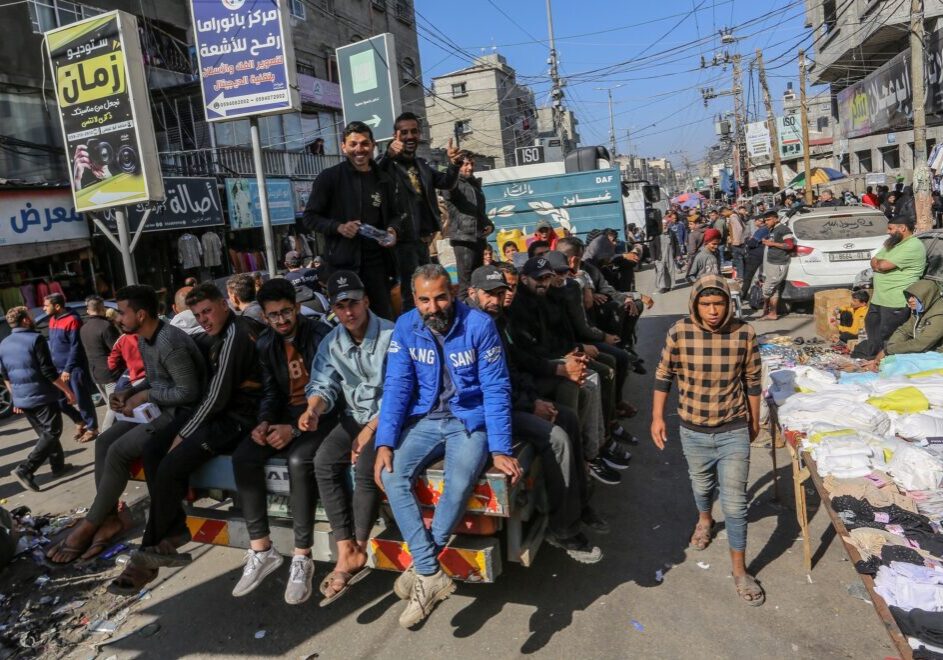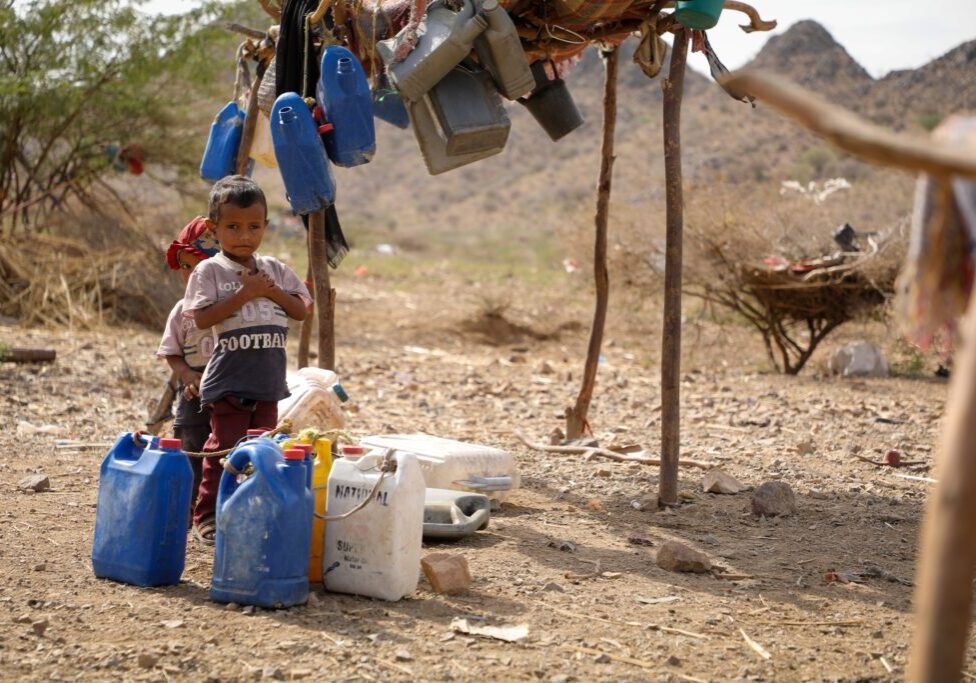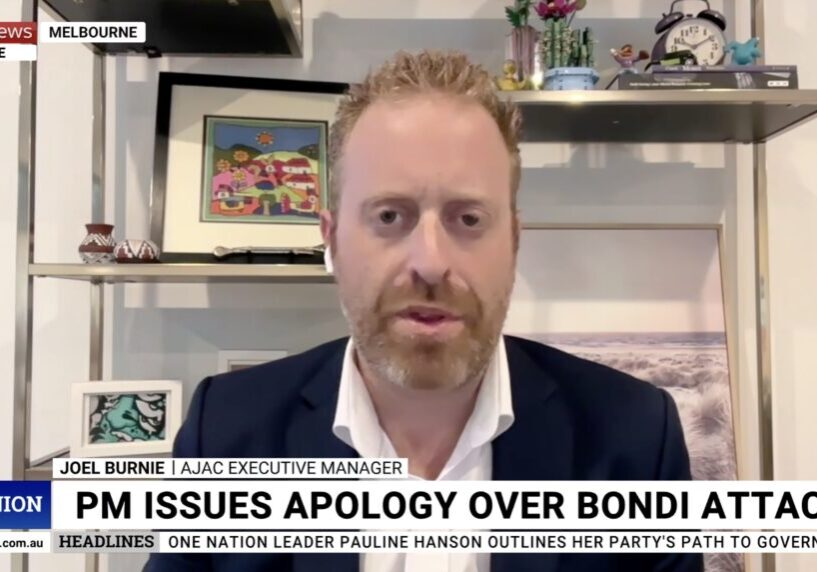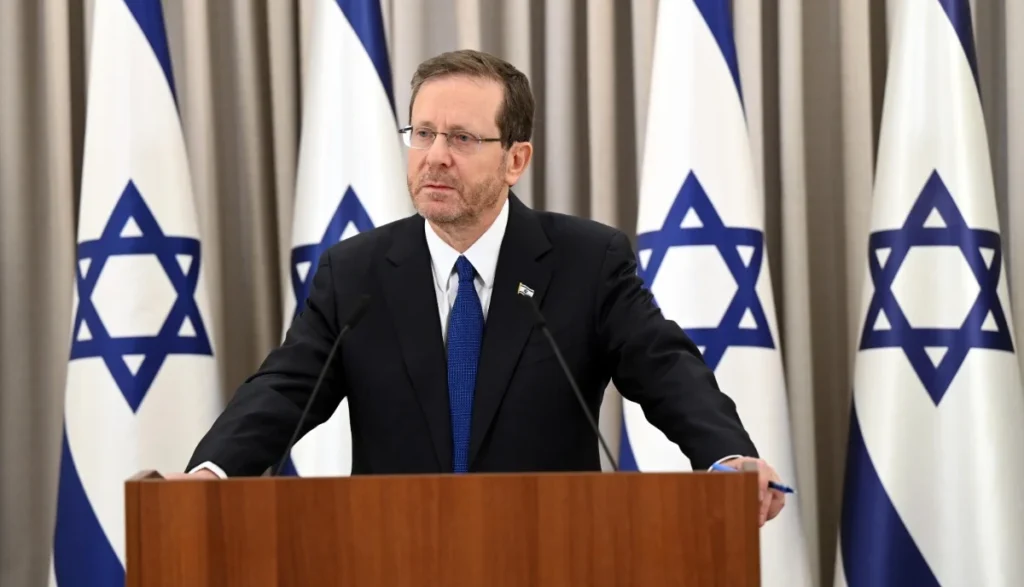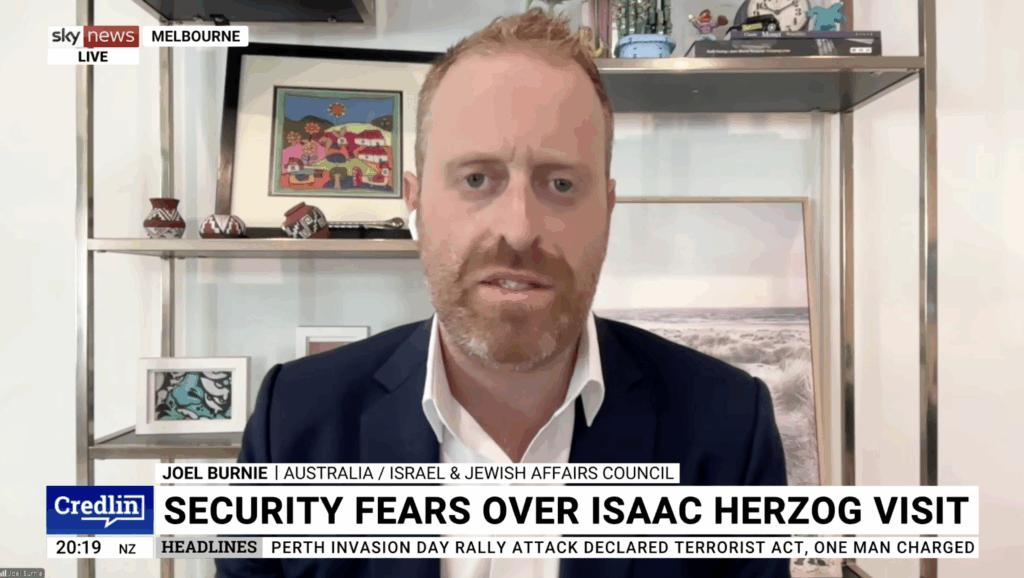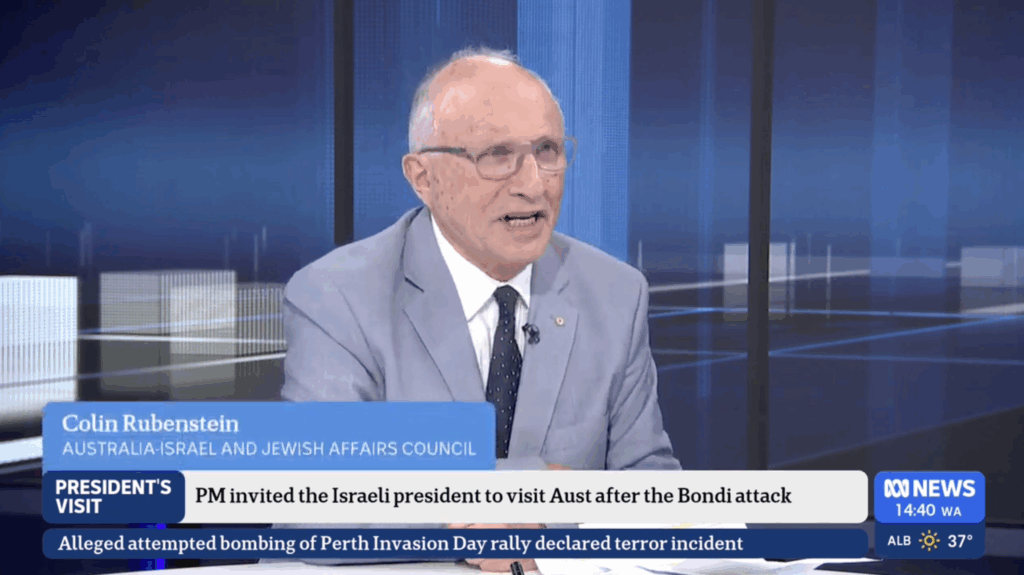FRESH AIR
Israel refuses to participate in UN “human rights” farce
February 1, 2013 | Daniel Meyerowitz-Katz
Israel has been making headlines recently for its failure to show-up to its “Universal Periodic Review (“UPR”) session at the United Nations Human Rights Council (“HRC”) and for refusing to cooperate with a recent “fact-finding mission” into settlements in the West Bank. As JTA reports:
Israel did not send representatives to its review session on Tuesday at the United Nations Human Rights Council in Geneva. The council was conducting its Universal Periodic Review process in which the 193 UN member states have their human rights record reviewed every four years.
In March, Israel stopped cooperating with the council after it set up a committee to investigate Israeli settlements and their effect on Palestinian human rights. … Israel’s absence on Tuesday was the first time that a country under evaluation did not show up without an explanation.
Anne Herzberg from the Gatestone institute gives some background on the UPR and its original design:
UPR was instituted as the focal point of the newly-created HRC in 2006, which was established as a correction to its predecessor, the Commission on Human Rights. The Commission was disbanded after being hijacked by dictatorships and the Organization of the Islamic Conference. The huge embarrassment was compounded by a singular focus on Israel. According to UN Watch, approximately half of all country-specific resolutions condemned the Jewish state.
The Commission’s standing agenda included the notorious “Item 7,” meaning that Israel was the only country singled out at every session. Inevitably, this resulted in incessant discussion of alleged Israeli violations against Palestinians. By 2005, the situation had deteriorated to the point that UN Secretary General Kofi Anan remarked, “the Commission’s ability to perform its tasks has been . . . undermined by the politicization of its sessions and the selectivity of its work.”
Sadly, it appears that the reforms to the Commission and its re-branding as the “Council” have had little effect. The Council’s standing agenda continues to include Item 7, “Human rights situation in Palestine and other occupied Arab territories”, which is distinct from Item 4, “Human rights situations that require the Council’s attention”. Of course, by “occupied Arab territories”, the Council is not referring to the likes of Syrian and Iraqi Kurdistan; the Moroccan-occupied Sahrawi Western Sahara; or the Sudanese-occupied Darfur, South Kordofan, and blue Nile regions. In effect, the item is only referring to territories allegedly occupied by Israel, and results in Israel being subject to far more reports and resolutions than any other country in the world. For example, at its session in February-March 2012, the Council passed five country-specific resolutions on Israel, compared with two on Syria, and one on each of: Iran, North Korea, Myanmar, the Democratic Republic of the Congo, Libya, Somalia, Sri Lanka, and Yemen.
Nevertheless, Israel’s refusal to be subjected to continuous disproportionate and undue criticism seems to be the subject of much disapproval in the international community. For example, Amnesty International stated that:
As the only recalcitrant state among 193, Israel’s deliberate absence would sabotage the principle of universality. Consequently the Universal Periodic Review stands to lose the compelling legitimacy it derives from being applied even-handedly to all states. … Finally, a process applied consistently to all states was at hand, and in its first cycle of reviews, it worked. It is ironic that Israel is now undermining a mechanism that was designed to remedy the bias Israel protested against.
Regrettably, the UPR does not have any of the “compelling legitimacy” that Amnesty ascribes to it. In fact, that the HRC has failed to overcome its singular focus of Israel to the exclusion of the vast majority of the world’s human rights abuses is only confirmed the absolute farce that the UPR has become.
The report of Israel’s previous UPR, held in December 2008, gives George Orwell a run for his money. An especially ridiculous recommendation came from Egypt, which called for Israel to “lift the closure and seizure it imposes on the Gaza Strip”. This would be the same Egypt that borders Gaza and had also been implementing a border closure which was in fact more extensive than Israel’s. Others included:
- Iran expressing “concern” at “grave and systematic violations of human rights against the people of Palestine, the Syrian Golan, Lebanon and other occupied territories”, such as “extrajudicial killings, demolition of houses, imprisonment of innocent people, racist and discriminatory policies and practices, use of torture”, etc;
- Morocco calling for Israel to end all “measures aimed at making the occupied East Jerusalem Jewish, including … the building of a synagogue” – referring to the reconstruction of the Hurva Synagogue, which had been Jerusalem’s main Ashkenazi (European Jewish) synagogue until it was destroyed in 1948 under Jordan’s policy of “de-Judaising” Jerusalem;
- Jordan recommending that Israel “ensure access to religious sites, especially in the Holy City of Jerusalem”;
- Kuwait, which expelled tens of thousands of ethnic Palestinians in 1991, calling on Israel to respect “the right of the Palestinian people to self-determination”;
- Cuba saying that “the notion of Israel being a democracy is incompatible with its position as an occupying power humiliating and denying the fundamental rights of Palestinian people”; and
- North Korea stating that Israel was creating “a major obstacle to the enjoyment of human rights by Palestinians, especially in education, health care, employment and basic social services.”
By way of comparison, Anne Bayefsky gives a rundown of the Syrian UPR, conducted last year as civil war was raging:
On October 7, 2011, the Syrian vice-minister of foreign affairs and his entourage took their places in the Council chamber. And then the Cubans said: “the Syrian government is working for the human rights of its people.” The North Koreans said: “we commend Syria on its efforts taken to maintain security and stability.” The Iranians said: “we appreciate the efforts of the government of Syria to promote and protect human rights.” Ditto Sudan, Nicaragua, Venezuela, Algeria, Lebanon, China, Zimbabwe, Burma/Myanmar, and so on.
Four days later, on behalf of the three countries charged with compiling recommendations, Mexico reported to the Council: “Syria received a total of 179 recommendations…It is a pleasure to inform you that 98 recommendations were accepted and 26 shall be considered.” Among the recommendations that “did not enjoy the support” of Syria were “immediately end attacks on peaceful protesters and bring violators to account,” “put an end to secret detentions” and “allow journalists to freely exercise their profession.” At the end of this stage of the UPR, the President of the Council turned to Syria and signed off with “I thank both you and your delegation for your participation in the UPR.”
At the time, there were 2,600 dead Syrian citizens at the hands of their own government. And Assad got the message about the human rights bona fides of the UN. …There are now over 60,000 dead in Syria.
Another example was Iran’s UPR in February 2010. Numerous Western states expressed concern at such matters as: arbitrary detention; torture; cruel and inhuman punishment, such as public hangings, stonings, amputations, and the execution of minors; widespread violence against women; and harassment of religious minorities. Other states, however, were a little friendlier. Inter alia, Bahrain and Zimbabwe both “commended Iran’s commitment to human rights”; Venezuela “noted efforts to promote economic, social and cultural rights”; and Cuba “noted Iranian’s [sic] work for development, welfare and sovereignty”.
Iran’s responses were cunning, but also very disturbing. For instance, it accepted all broad recommendations for it to eliminate torture, but explicitly rejected to codify the prohibition against torture under international law because it recognised that international law designates as torture what Iran considers to be “legitimate punishment”. Similarly, it committed to ensure an “effective and impartial judicial system” and to protect the due process of law; but refused such recommendations as to provide the basic right to access a lawyer during the accusation period, to renounce collective trials, and to allow international observers to attend trials.
Iran also committed to protecting the right of women, while denying any responsibility to prevent violence against women; and committed to guaranteeing the right of all “recognised religions” to practice freely, while noting elsewhere that the Baha’i faith was not “recognised”. None of these facts seemed to raise much ire in the Council, which adopted Iran’s Review without a vote.
The other previous UPR reports continue in a similar theme. A particular highlight was the glowing report on Libya’s human rights record in early 2011, just before Libya’s deranged ruler killed thousands of his own people before eventually being overthrown.
It seems ridiculous, therefore, to claim that Israel’s refusal to participate in this charade would somehow damage an otherwise effective human rights mechanism. In reality, the disease that affected the Council’s predecessor continues to thrive in the HRC’s current incarnation.
Perhaps Israel’s refusal to participate will strip the process of some legitimacy, but only through exposing severe flaws that are otherwise only apparent to those with the patience to read through stacks of dense and inaccessible reports. If anything, Israel should be commended for doing so.
Tags: Israel, United Nations
RELATED ARTICLES
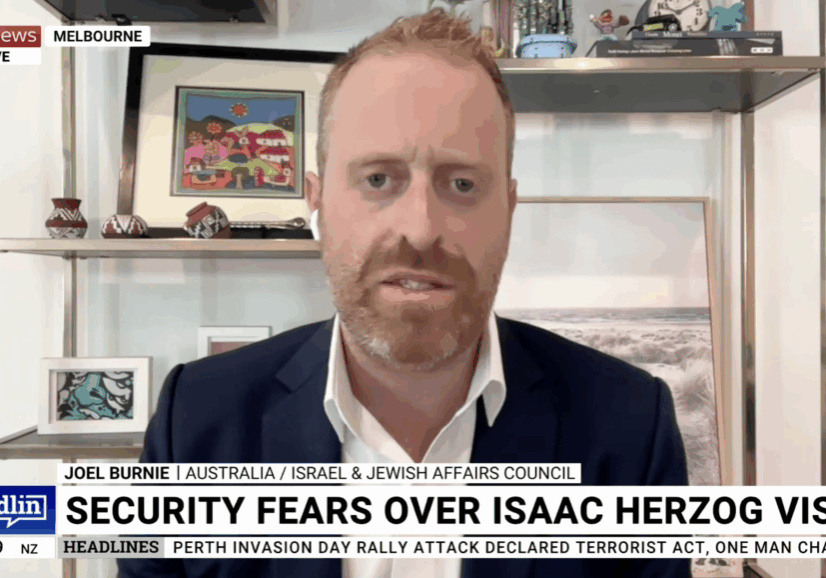
Security concerns over Herzog visit a terrible indictment: Joel Burnie on Sky News
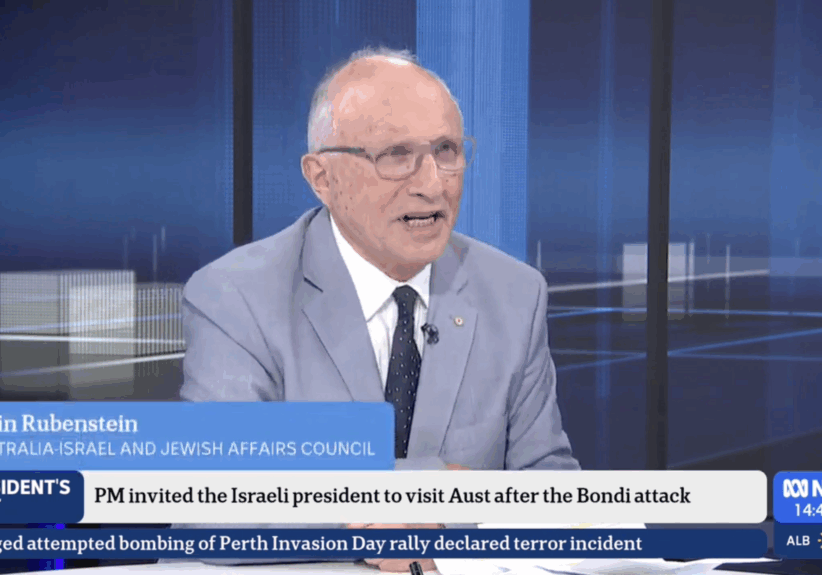
Allegations against Israeli President Herzog are absurd: Colin Rubenstein on ABC News






